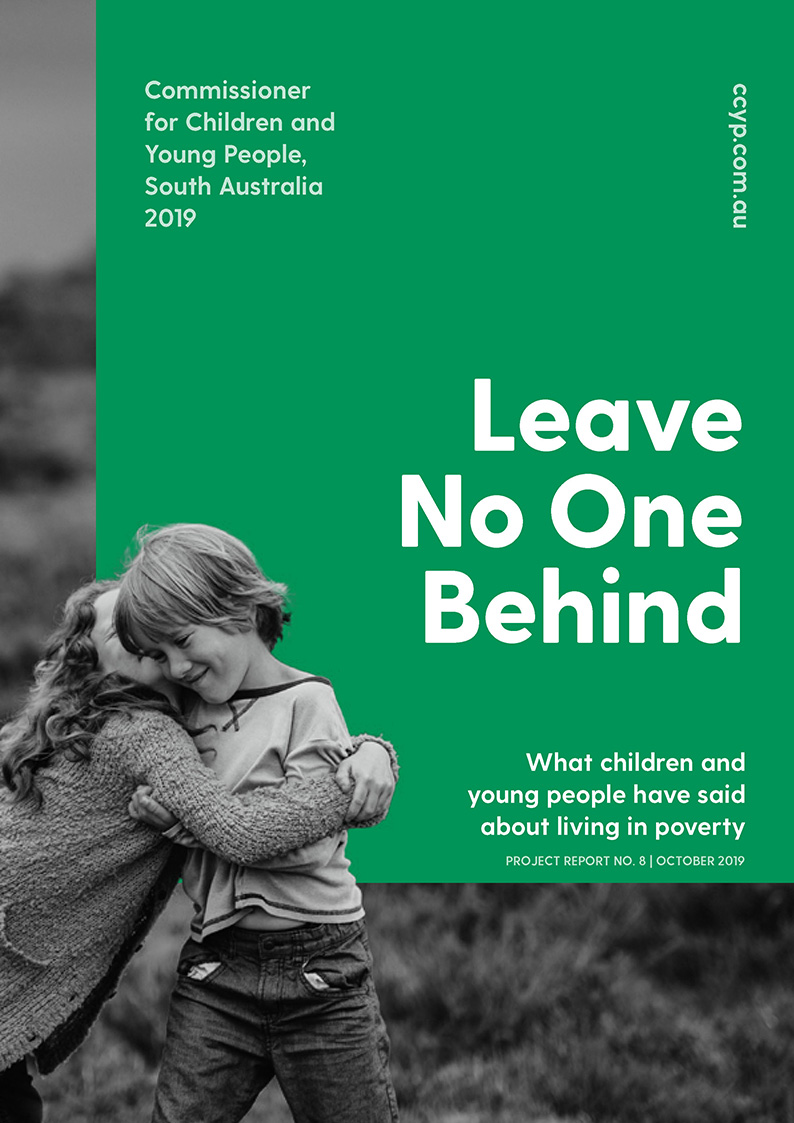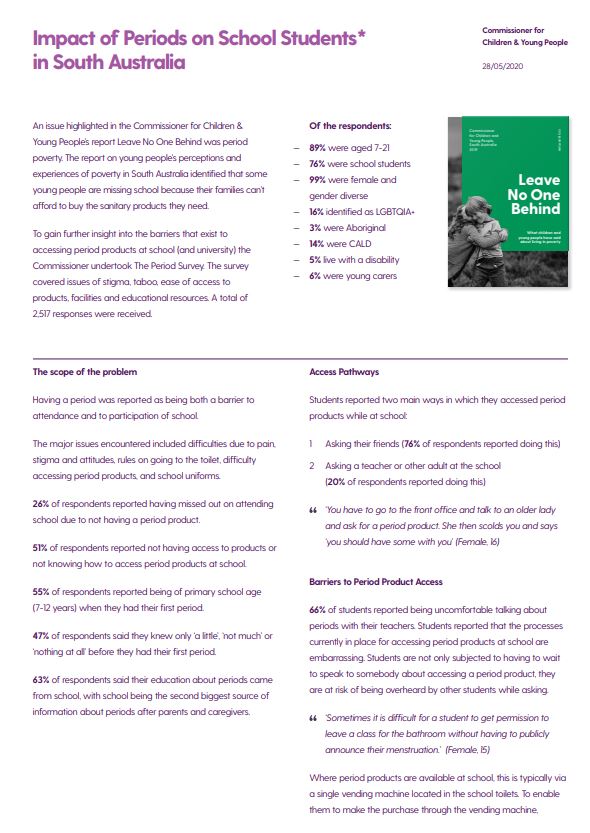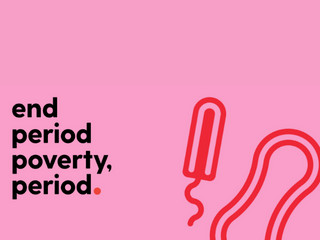The Poverty Project
What was it?
The report considers definitions and measures of poverty. It is clear that poverty is about more than just income and looks at the importance of housing, energy, water, telecommunications and Justice. The report looks at the impact that poverty has on access to health, housing, education, employment and social participation.
It is evident that poverty is a serious problem facing South Australian families. Research tells us that children growing up in poverty can experience developmental delays, reduced academic success, and impaired lifelong physical and mental health outcomes.
Poverty is described in terms of wealth inequality, living below the poverty line and ‘being poor’.
The Commissioner was keen to learn more about what children and young people in South Australia understood poverty to mean, how they would describe the impact of poverty, and what they believe the contributing factors to poverty are. The Commissioner also asked young people what they would suggest be done in SA to ‘help poor kids’.
Background
The Commissioner for Children and Young people was established under the Children and Young People (Oversight and Advocacy Bodies) Act 2016. The Commissioner promotes and advocates for the rights, best interests and well-being of all children and young people in South Australia. The Commissioner is committed to advocating for children and young people’s involvement in decision-making that affects them, giving particular consideration to the needs of the vulnerable and at-risk children and young people.
Since her appointment the Commissioner, Helen Connolly has met with more than 2,500 of South Australia’s children and young people in various settings and in different contexts for many purposes. During this time the Commissioner has also heard from many agencies, families, community members and stakeholder groups regarding their concerns or hopes for South Australia’s children.
During the Listening Tour children and young people told the Commissioner that ‘Helping Poor Kids’ should be one of her top five priorities. Children and Young people talked about wanting cheaper bills to make it easier for families, wanting all children to get a good education and access to activities, sports and fun things to do to be possible for everyone.
Project Overview
- Conversations with Young People
- Exploring what ‘Helping Poor Kids’ means.
- ‘Helping poor kids’ and Poverty: are they the same?
- Stakeholder Engagement – Discussions with key stakeholders
- Survey – Develop and distribute survey to selected groups – online
- Focus groups with Young People – A crucial aspect of the project was developing an understanding what children and young people think poverty looks like, what they think the impacts of it are and what factors might contribute to poverty.
- The Poverty Forum
- One Day Forum – co-hosted with UN Youth SA
- Explored the impact of poverty on children and young people from a rights perspective?
- Considered what are the current responses to addressing poverty?
- Considered what more should be done, and by whom, to address issues associated with poverty in South Australia.
Project update
The project culminated in a report by the Commissioner titled Leave No One Behind. The report was launched in October 2019 and was the result of more than 1400 consultations undertaken with children and young people. It outlines six key recommendations which the Commissioner has called upon government and non-government organisations across industry and community to work together to achieve. The Commissioner will be advocating for the recommendations to be implemented and has written to key stakeholders and decision makers to create awareness and to encourage positive change.
The Commissioner released the Leave No One Behind report which culminates more than 1400 consultations with children and young people.
An issue highlighted in the Commissioner for Children & Young People’s report Leave No One Behind was period poverty. The report on young people’s perceptions and experiences of poverty in South Australia identified that some young people are missing school because their families can’t afford to buy the sanitary products they need.
Children and young people told me about the hidden issue of period poverty at school and the affect it had on their attendance at school. In response, I conducted a survey of over 3000 children and young people aged 7-22 and produce the Menstruation Matters report.
This lead to the development of the End Period Poverty website which aims to eliminate period poverty, period.





